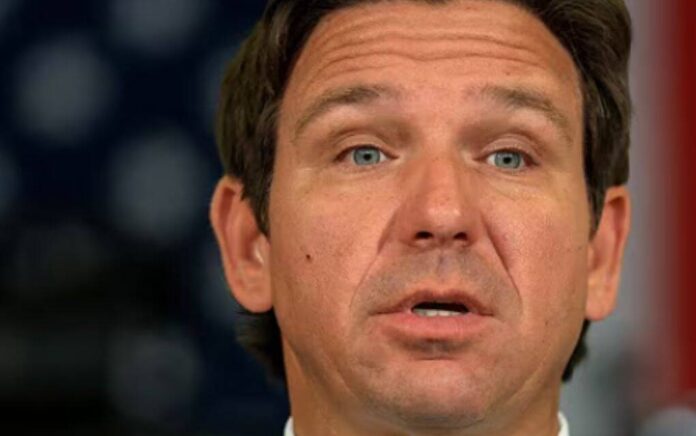
Democrat leaders know they’re in trouble. Their party may never recover.
And the Democrat Party fears extinction after being rocked by this devastating news.
Miami-Dade’s Historic Shift: Florida’s Political Landscape Turns Red
In a groundbreaking turn of events, Miami-Dade County, long a Democratic bastion in Florida, has tipped the scales in favor of Republicans for the first time ever. As of Monday morning, Florida’s Voice reported 464,370 registered Republicans compared to 440,790 Democrats in the county, marking a seismic shift in one of the state’s most iconic blue strongholds. This change means 59 of Florida’s 67 counties now lean Republican, painting the Sunshine State a deeper shade of red.
“Miami-Dade County has completed its off-year voter roll maintenance, and this morning, it shed 172,747 voters from its active rolls,” said Michael Pruser, Decision Desk HQ’s director of data science. “The change netted Republicans more than 38,000 voters compared to Democrats, and the county has now flipped to Republican by registration. Today marks Republicans’ first-ever lead in voter registration in Miami-Dade.”
This transformation didn’t happen overnight. Just four years ago, Florida was a battleground state, with its 14.5 million registered voters split almost evenly between the two major parties. Per the Florida Department of State, Democrats held a slight edge with 5,290,465 registered voters to the Republicans’ 5,185,744, alongside 3,832,070 independents and 247,108 voters aligned with smaller parties.
Fast forward to today, and the numbers tell a different story according to the Florida Department of State: 5,578,457 registered Republicans now outnumber 4,329,271 Democrats, a stunning 5.8-point swing in less than four years.
Much of this shift can be traced to the leadership of Governor Ron DeSantis, whose bold conservative policies have reshaped Florida’s political identity. DeSantis was elected in 2018 by a razor-thin margin, and by November 2021, the Democrats lacked any sort of faith in defeating him.
POLITICO reported that the Democratic Governors Association opted not to heavily fund any challenger to DeSantis in his 2022 re-election bid, choosing instead to focus on races they deemed winnable. On October 31, POLITICO declared, “Gov. Ron DeSantis appears unstoppable.” The governor proved them right, securing nearly 60% of the vote in a landslide victory in November 2022.
DeSantis’ influence paved the way for even greater Republican success. In 2024, President Donald Trump, who had narrowly carried Florida in 2016 and 2020, won the state by double digits.
The Associated Press called the race early, citing Trump’s strong performance in Miami-Dade County, which he was poised to win. This built on DeSantis’ historic achievement two years prior, when he became the first Republican in two decades to carry Miami-Dade in a statewide race.
DeSantis’ tenure has been defined by a string of conservative policies that have resonated with voters. He kept Florida open during the COVID-19 pandemic, a decision that drew both criticism and praise but ultimately bolstered his image as a decisive leader.
He signed laws requiring E-Verify for government employers and contractors, ended cooperation with programs relocating illegal immigrants, and championed school choice. Other measures included banning Critical Race Theory in schools, prohibiting men from competing in women’s sports, and barring China from purchasing land in Florida. His handling of natural disasters like Hurricanes Ian and Nicole earned widespread acclaim, and initiatives like a $5,000 signing bonus for new police officers further solidified his appeal.
The Democrat Party’s Decline in Popularity
The flipping of Miami-Dade County is not just a Republican triumph but a stark indicator of the Democratic Party’s waning influence in Florida. Once a reliable stronghold, Miami-Dade’s shift reflects a growing disillusionment with Democratic policies among voters.
This trend is part of a larger pattern across the state, where Democrats have struggled to maintain their footing. The 2024 election results pointed to this, as Trump’s double-digit victory and his success in Miami-Dade highlighted the party’s inability to connect with key demographics, including the county’s significant Hispanic population, which has started to leaned Republican.
Voter registration data further illustrates the Democrats’ challenges. The 1.2 million-voter gap between Republicans and Democrats statewide, as reported by the Florida Department of State, is a far cry from the near-parity of 2021.
This erosion of support has been particularly pronounced during Joe Biden’s tenure as president, suggesting that national policies may be alienating Florida voters. Issues like immigration, education, and economic concerns have driven many to the Republican camp, with DeSantis’ proactive governance providing a compelling contrast to Democratic offerings.
The Democratic Party’s strategic missteps have also played a role. The decision to withhold significant funding from DeSantis’ 2022 opponent signaled a lack of confidence in their ability to compete in Florida, a move that likely demoralized local activists and voters. Meanwhile, Republicans have capitalized on grassroots enthusiasm, cultural issues, and effective messaging to expand their base. Miami-Dade’s flip is a wake-up call for Democrats, who must now grapple with rebuilding trust and relevance in a state that has decisively turned against them.
Stay tuned to The Federalist Wire.



















